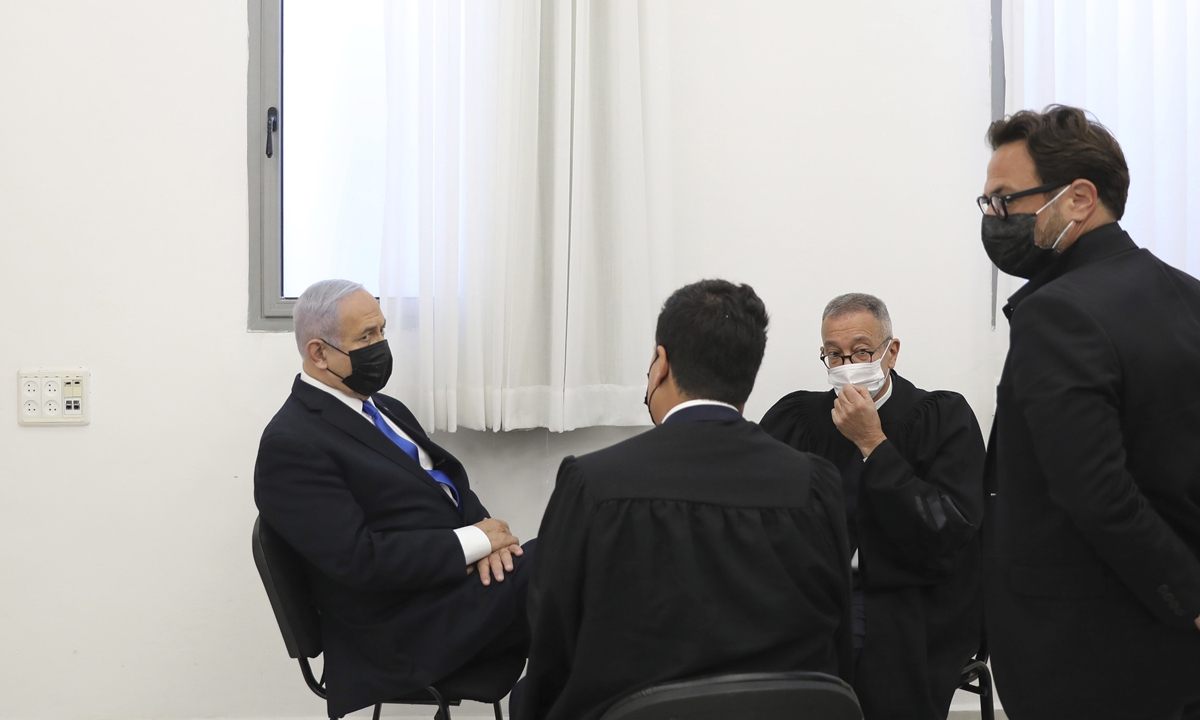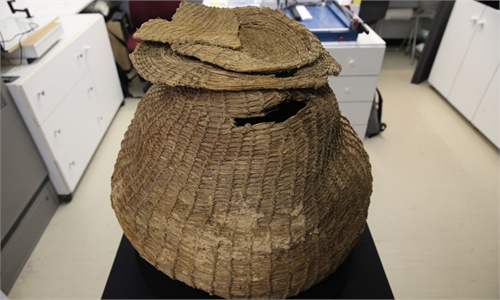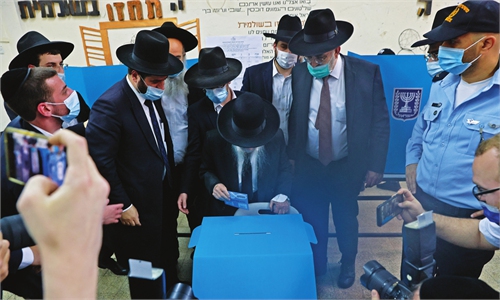Israel in an unprecedented twist for coalition talks that may heal divisions
Netanyahu due in court, amid ramp up
Israel's legal and political dramas converge Monday, with Prime Minister Benjamin Netanyahu due in court for his corruption trial and the president to launch talks to help form a government.

Judges have ordered Netanyahu to appear at the Jerusalem District Court for the prosecution's opening arguments in the case where he is charged with bribery, fraud and breach of trust - allegations he denies. While lead prosecutor Liat Ben-Ari will be laying out the criminal case against Israel's longest-serving leader, across the city President Reuven Rivlin will hold discussions that could determine Netanyahu's political fate.
Israel's March 23 election was its fourth inconclusive vote in less than two years, prolonging the worst political crisis in the nation's history.
Netanyahu's right-wing Likud party finished first, winning 30 seats in the 120-member parliament, but his ability to form a stable governing coalition is precarious, a reality that has plagued him for several years.
Rivlin on Monday begins two days of consultations with party officials to determine who has a plausible path towards a 61-seat majority, in a parliament bitterly divided between those who back Netanyahu and those committed to ending his 12-year tenure.
Customarily, Rivlin gives a 28-day window to form a government to the leader with most recommendations from individual lawmakers.
That can be extended 14 days at the president's discretion.
Netanyahu is expected to get support from his 30 Likud loyalists, 16 lawmakers representing Israel's ultra-Orthodox Jewish parties, and six votes from the far-right Religious Zionism alliance.
That makes a likely total of 52, nine short of the absolute majority needed. Because the ideologically divided anti-Netanyahu camp has no agreed leader, Netanyahu may receive the most recommendations. But in comments that infuriated Likud, Rivlin implied on Thursday that he would not necessarily be guided by mathematics alone. He said he would give the mandate to the lawmaker who has a chance to form a government "that will heal the divisions between us and rebuild Israeli society."
The president also said that "out-of-the-ordinary coalitions" may be required to break the political gridlock.
Given past public acrimony between Rivlin and Netanyahu, Likud interpreted those comments as a sign that the president was tacitly aligned with the anti-Netanyahu camp.
Rivlin was accused by Netanyahu's party of overstepping his largely ceremonial mandate. Within the anti-Netanyahu bloc, the centrist Yesh Atid party, led by former television host Yair Lapid, won the most seats with 17.
An anti-Netanyahu alliance would require a tightrope deal among Lapid, Likud defector Gideon Saar, Netanyahu's estranged protege Naftali Bennett - a hardline religious nationalist - and a group of centrist and left-wing parties.
In an unprecedented twist for Israeli coalition politics, it appears impossible for either camp to form a government without support from the conservative Islamic Raam Party.

Israeli Prime Minister Benjamin Netanyahu, left, attends a hearing evidence stage for his trial over alleged corruption crimes, at the Jerusalem district court, in Salah El-Din, East Jerusalem, Monday, April 5, 2021. Photo: VCG
Judges have ordered Netanyahu to appear at the Jerusalem District Court for the prosecution's opening arguments in the case where he is charged with bribery, fraud and breach of trust - allegations he denies. While lead prosecutor Liat Ben-Ari will be laying out the criminal case against Israel's longest-serving leader, across the city President Reuven Rivlin will hold discussions that could determine Netanyahu's political fate.
Israel's March 23 election was its fourth inconclusive vote in less than two years, prolonging the worst political crisis in the nation's history.
Netanyahu's right-wing Likud party finished first, winning 30 seats in the 120-member parliament, but his ability to form a stable governing coalition is precarious, a reality that has plagued him for several years.
Rivlin on Monday begins two days of consultations with party officials to determine who has a plausible path towards a 61-seat majority, in a parliament bitterly divided between those who back Netanyahu and those committed to ending his 12-year tenure.
Customarily, Rivlin gives a 28-day window to form a government to the leader with most recommendations from individual lawmakers.
That can be extended 14 days at the president's discretion.
Netanyahu is expected to get support from his 30 Likud loyalists, 16 lawmakers representing Israel's ultra-Orthodox Jewish parties, and six votes from the far-right Religious Zionism alliance.
That makes a likely total of 52, nine short of the absolute majority needed. Because the ideologically divided anti-Netanyahu camp has no agreed leader, Netanyahu may receive the most recommendations. But in comments that infuriated Likud, Rivlin implied on Thursday that he would not necessarily be guided by mathematics alone. He said he would give the mandate to the lawmaker who has a chance to form a government "that will heal the divisions between us and rebuild Israeli society."
The president also said that "out-of-the-ordinary coalitions" may be required to break the political gridlock.
Given past public acrimony between Rivlin and Netanyahu, Likud interpreted those comments as a sign that the president was tacitly aligned with the anti-Netanyahu camp.
Rivlin was accused by Netanyahu's party of overstepping his largely ceremonial mandate. Within the anti-Netanyahu bloc, the centrist Yesh Atid party, led by former television host Yair Lapid, won the most seats with 17.
An anti-Netanyahu alliance would require a tightrope deal among Lapid, Likud defector Gideon Saar, Netanyahu's estranged protege Naftali Bennett - a hardline religious nationalist - and a group of centrist and left-wing parties.
In an unprecedented twist for Israeli coalition politics, it appears impossible for either camp to form a government without support from the conservative Islamic Raam Party.




